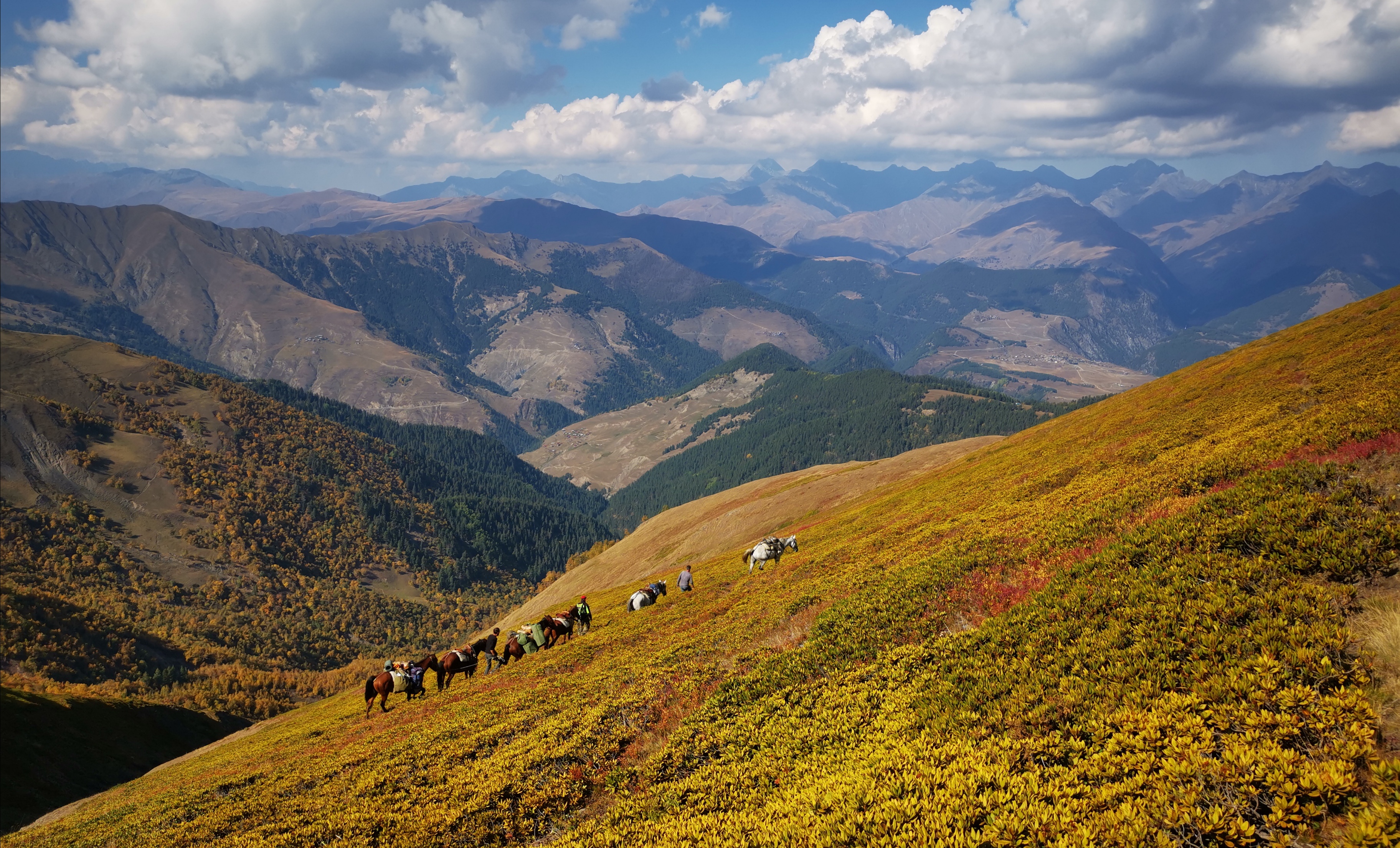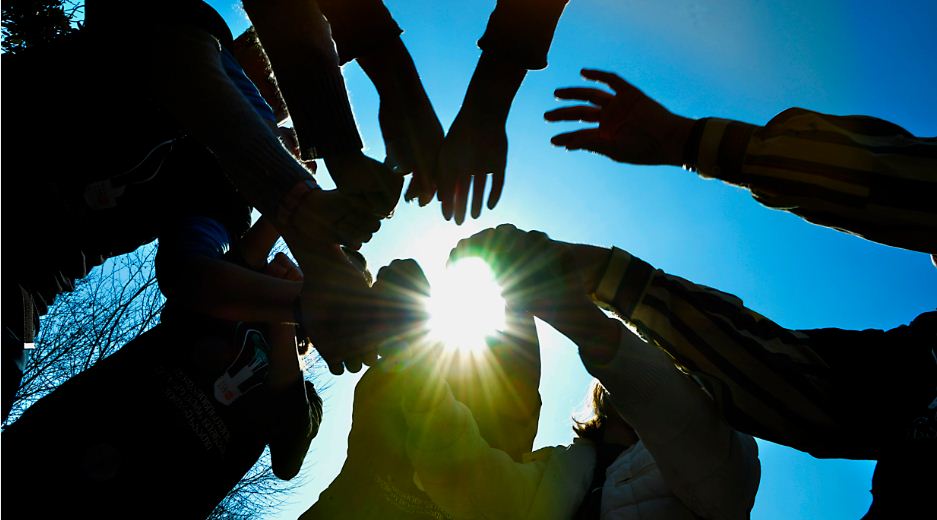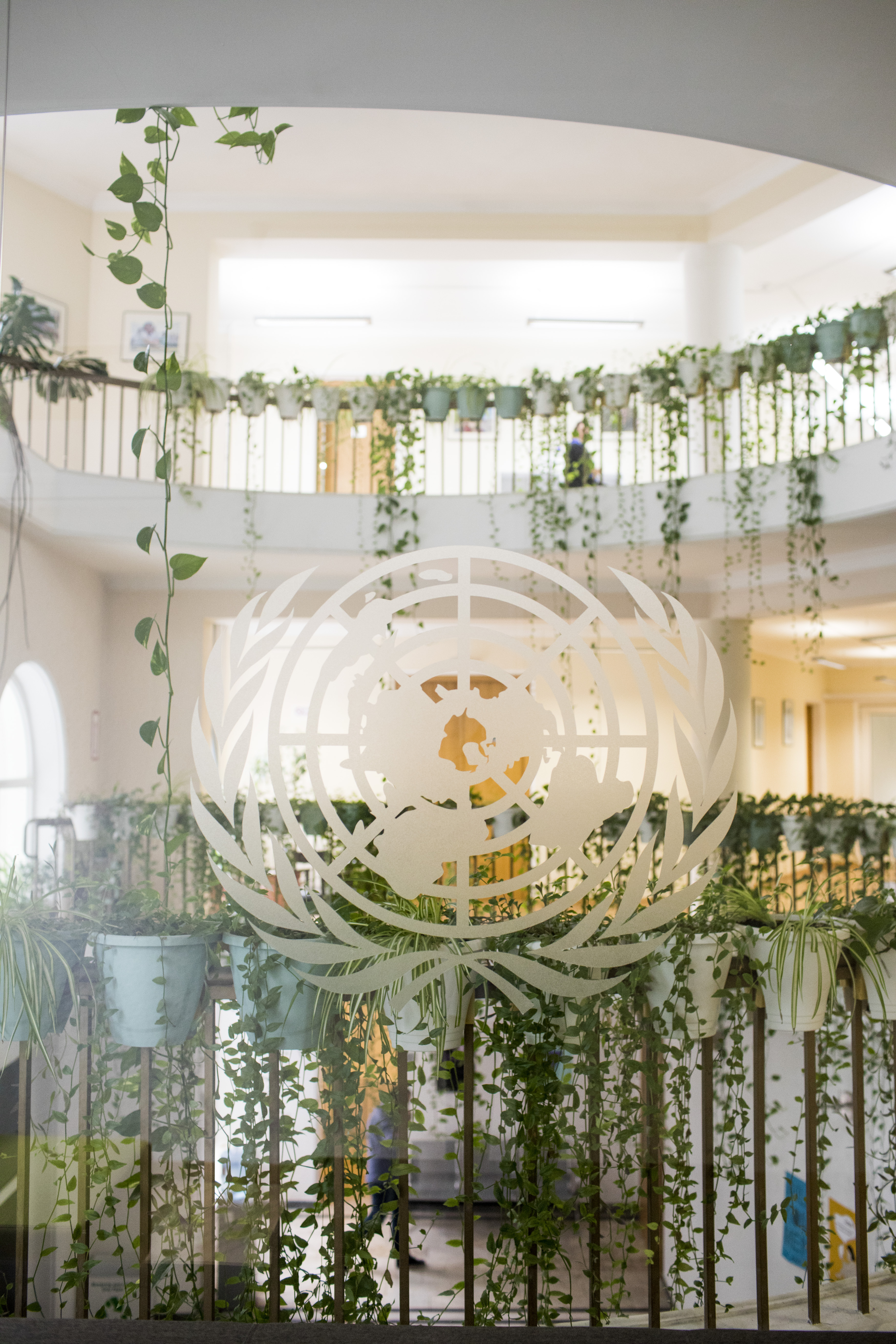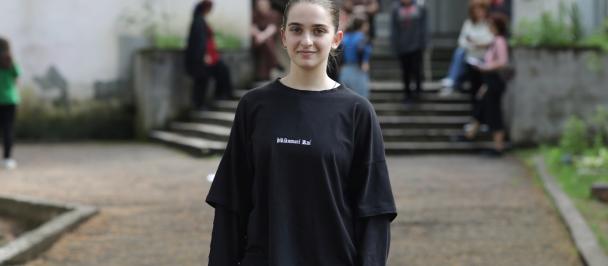EU and UNDP's “Mayors for Economic Growth” initiative transforms Georgia’s cities through citizen-led innovation
Urban Imaginaries Forge New Development Pathways in Georgia
December 17, 2024

"The wind is sweet like a song. Love is the only way to live under this sky!"
Georgia’s countryside embodies the spirit of this old urban tune, with small towns nestled among lush fields, forests climbing gentle slopes, and people known for their warmth, sharp wit, and openness to new ideas.
Rural regions have long been at the forefront of Georgia’s economic and social reforms. From innovative tourism ventures like the Tea Route to modern approaches to producing ancient Georgian wines, local communities are eager to explore fresh possibilities. They are also embracing digital platforms for citizen engagement and experimenting with new technologies, such as Urbanist AI, to shape the future of their cities.
While this creative energy is a vital catalyst for innovation, it alone cannot shield dynamic municipal communities from ongoing and emerging challenges. Poverty, unemployment, and the disparity in economic development compared to larger cities continue to threaten progress, leading to increasing migration.
On average, 70% of economically disadvantaged Georgian families live in rural areas or small towns, where unemployment stands at 17.6%, compared to 14.6% in larger cities. Between 2018 and 2024, the rural population declined by 7.4%, while the urban population witnessed a growth of 3.6%. [Source: GEOSTAT]
Through the “Mayors for Economic Growth” (M4EG) initiative, the European Union and UNDP empower Georgia's rural and urban communities to embrace municipal innovation in an ever-changing world. The Urban Imaginaries programme, implemented under the M4EG initiative, guides local governments to listen to their citizens actively, reflect on the unique social and physical landscapes of their municipalities, and explore new urban identities. Through this collaborative process, municipal authorities and citizens co-create solutions that address emerging challenges and help reshape the future of their towns and cities.
Samtredia, Tskaltubo, and Poti are among the four Georgian cities selected for this innovative journey. Their stories serve as urban transformation role models and inspire other municipalities across the country.
Samtredia: A City on the Move

A century ago, people living in Samtredia would call bicycles the "two-eye devil’s wheels." Today, cycling has become a favoured mode of transport, often replacing cars as the city embraces a healthy lifestyle. Many Samtredians are now passionate about sports, excelling in swimming, football, and other physical activities.
In 2022, Samtredia was selected for the Urban Imaginaries programme, receiving targeted support from the EU and UNDP to explore sustainable and inclusive development through a system-thinking approach. This carefully curated process included learning and mentorship provided by the Centre of Public Impact, followed by extensive consultations between municipal authorities and city residents to identify development needs and co-create solutions. Unsurprisingly, local sports centre renovation topped the list.
“We used to have a functioning swimming pool, but it was closed during the pandemic lockdown in 2020. The infrastructure needed repairs as well. During our consultations with the local community, the swimming pool was highlighted as an urgent project. The municipality responded quickly, initiating the renovation process. Sports facilities not only promote healthy lifestyles but also create economic opportunities for local businesses,” shares Sergo Kopaleishvili from Samtredia City Hall.
The renovation of the sports centre was made possible with EUR 60,000 from the European Union, along with additional funding from the municipal budget. The upgraded facility now includes a swimming pool with a modern water filtration system and indoor courts for basketball and football.
"My children come here every day! We used to travel to other towns for sports and recreation, but now there’s a great swimming pool right here. When the municipality listens to people, that's how successful projects happen," says local resident, Tinatin Maghnaradze.
Tskaltubo: Bridging the Past and the Future

Once a thriving resort, Tskaltubo is now a forgotten paradise. In the 20th century, the city was famous for its bubbling mineral springs and healing spas, drawing hundreds of thousands of tourists annually. Today, with its 22 decaying sanatoriums, Tskaltubo still waits for its revival. In the meantime, like many other Georgian municipalities, it battles poverty, unemployment, and the migration of young people seeking better opportunities elsewhere.
The European Union and UNDP, through the Urban Imaginaries programme, offered Tskaltubo a chance to reimagine its future.
“The EU and UNDP helped us better understand people's thoughts and needs. We will use these approaches in future initiatives,” said municipality representative, Marekhi Kankadze.
City-wide consultations and targeted focus groups revealed an urgent need for vibrant public spaces that meet the networking and learning aspirations of the city’s youth. With joint funding from the European Union, Denmark, and the local municipality, Tskaltubo launched several projects to transform abandoned rural spaces into lively community hubs. These projects aim to revive cultural life in Tskaltubo and nearby villages, creating attractions for both residents and tourists.
From 2022 to 2024, initiatives included restoring the Niko Lortkipanidze House Museum, dedicated to the famous Georgian writer and journalist, and renovating an old showground for outdoor events and educational youth forums.
“Renovating this area was a fantastic idea! We’ve already got loads of plans for exciting events and activities,” says Luka Kavladze, 16, as he attends an interactive learning session on environmental innovation and smart technology, one of many events at Tskaltubo’s new community hub.
Poti: Where Everyone Belongs

“This pathway is for children like me. I always use it when I come here for a walk,” says Nini Gagua, an eight-year-old wheelchair user, as she enters Central Park in Poti, Georgia’s bustling port city.
Central Park was recently adapted to meet the needs of people with disabilities, following extensive consultations with Poti residents, civil society organizations, people with disabilities, and private sector representatives. The result is a collaborative process that puts people’s expectations, hopes, and needs at the heart of urban development.
“Poti is a city of opportunities. We want it to be a place where everyone feels they belong,” says Irakli Lezhava, Deputy Head of the Sustainable Development and Innovation Department at the Poti City Hall.
The renovated park is a welcoming multifunctional space for people of all abilities, ages, and backgrounds. Its accessible playgrounds, chess corners, and an outdoor movie theatre draw children, youth, and older residents to relax, socialise, jog, or simply enjoy the fresh air.
A public opinion survey, conducted by the municipality with the support of Tbilisi State University students, revealed that 89% of Poti residents approved of the City Park renovation project.
Like many other urban projects across Georgia, Poti’s inclusive Central Park is inspired and supported by the EU and UNDP’s “Mayors for Economic Growth” (M4EG) initiative.
Since 2022, M4EG, through the Urban Imaginaries and Municipal Transformation Portfolio programmes, has empowered eight Georgian cities to explore new development paths, fostering inclusive growth and vibrant social environments. Its broader goal is to build knowledge, create opportunities, and establish a powerful platform for sustainable, inclusive local development that leaves no one behind. Georgia’s achievements under the M4EG initiative are showcased in the 2023-2024 report.
Through the Mayors for Economic Growth programme, the EU and UNDP have empowered eight Georgian cities to explore new development paths, fostering inclusive growth and vibrant social environments.
Background Information:
The Mayors for Economic Growth (M4EG) is a joint EU and UNDP initiative to support municipalities in the Eastern Partnership region. The M4EG offers resources, networks, and learning opportunities to make towns and cities more attractive for people and investment. The M4EG takes a 'hyperlocal' and whole-of-place approach. Even though there are no quick fixes for complex challenges, investments in continuous learning, experimentation, and collaboration make municipalities more #futureready.
Disclaimer:
This story was produced with the financial support of the European Union and UNDP under the “Mayors for Economic Growth” (M4EG) project. Its contents do not necessarily reflect the views of the European Union and UNDP.

 Locations
Locations











